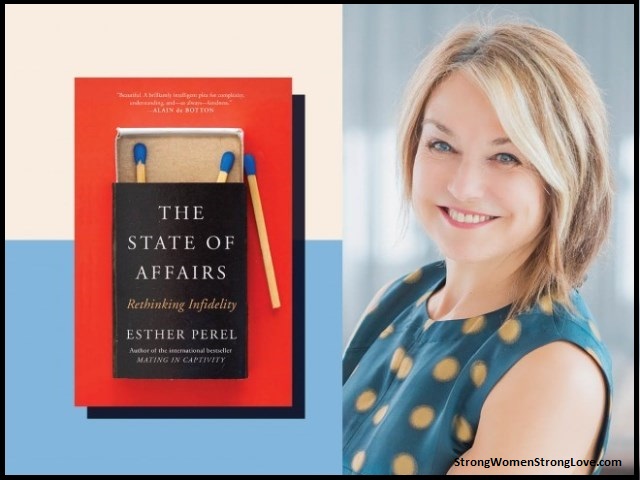If you haven’t experienced Esther Perel’s work yourself yet, you’ve probably heard someone you know talk about it — and likely express some very strong feelings.
Perel is a psychotherapist and a bestselling author. Her 2006 book, Mating in Captivity, touched off a flurry of discussions and debates about eroticism and desire in long-term relationships. Her most recent book, The State of Affairs: Rethinking Infidelity is perhaps even more provocative. In it, she offers insights and advice about infidelity that challenge many of the assumptions of our culture.
So what’s all the fuss about? Here are a few of the key ideas that Perel promotes.
1. Affairs aren’t about What We Think
We tend to assume that extramarital affairs are all about lust — that the straying partner is driven by desire for another person. But Perel believes there’s often something deeper going on: An unfaithful spouse is actually sometimes seeking a lost part of herself or himself. As she said in a recent interview on NPR:
When you pick a partner, you pick a story, and that story becomes the life you live. … And sometimes you realize, after years of living those parts of you, that there are other parts of you that have virtually disappeared. The woman disappeared behind the mother. The man disappeared behind the caregiver. The sensual person disappeared behind the responsible person.
And there is an expression of longing and yearning. Longing for connection, for intensity, for a sense of “aliveness,” which is really the word that many people all over the world would tell me when they are having an affair. They don’t talk about sex and excitement and titillation, actually. … What they say is they feel alive — as in vibrant, vital; as in a reclaiming of something that had gotten lost.
When the desire for lost or forgotten parts of ourselves collides with social media, infidelity can be the result, Perel says. Facebook and other social networks mean we can stay in touch with people from different eras of our lives — people who remember those “lost selves” we yearn to rediscover.
2. Affairs are More Painful Than Ever
Infidelity has been around as long as marriage has, but it feels even more devastating today because of our contemporary views on relationships, Perel says.
In the past, we had different expectations about marriage, Perel believes. It was more of a pragmatic alliance. But Western couples today want more from their unions. She writes:
We still want everything the traditional family was meant to provide—security, respectability, property, and children—but now we also want our partner to love us, to desire us, to be interested in us. We should be best friends and trusted confidants, and passionate lovers to boot.
We want our chosen one to offer stability, safety, predictability, and dependability. And we want that very same person to supply awe, mystery, adventure, and risk. We expect comfort and edge, familiarity and novelty, continuity and surprise. We have conjured up a new Olympus, where love will remain unconditional, intimacy enthralling, and sex oh so exciting, with one person, for the long haul. And the long haul keeps getting longer.
Somehow, we’ve gotten the idea that our spouses should be our primary source of validation, community and companionship. We expect one person to provide everything we once got from our extended families, our communities, our houses of worship. As our worlds get smaller, infidelity feels like a larger betrayal.
3. Marriages Can Survive Infidelity
While she doesn’t downplay the pain of infidelity, Perel doesn’t believe that an affair should automatically lead to the end of a marriage. The crisis of infidelity can drive couples to talk more honestly about who they are and what they need from the relationship. Of course, though, it’s much easier and less painful to have these conversations before cheating happens in a relationship!
Whether you agree with Perel’s ideas or not, consider what you can learn from them. One valuable takeaway is to remember to cultivate yourself and your own interests, both for your own wellbeing and the health of your marriage.
I invite you to explore Perel’s work further through the videos and links I’ve shared in this article. You can also enjoy her TED talk: “Rethinking infidelity…a talk for anyone who has ever loved”:


